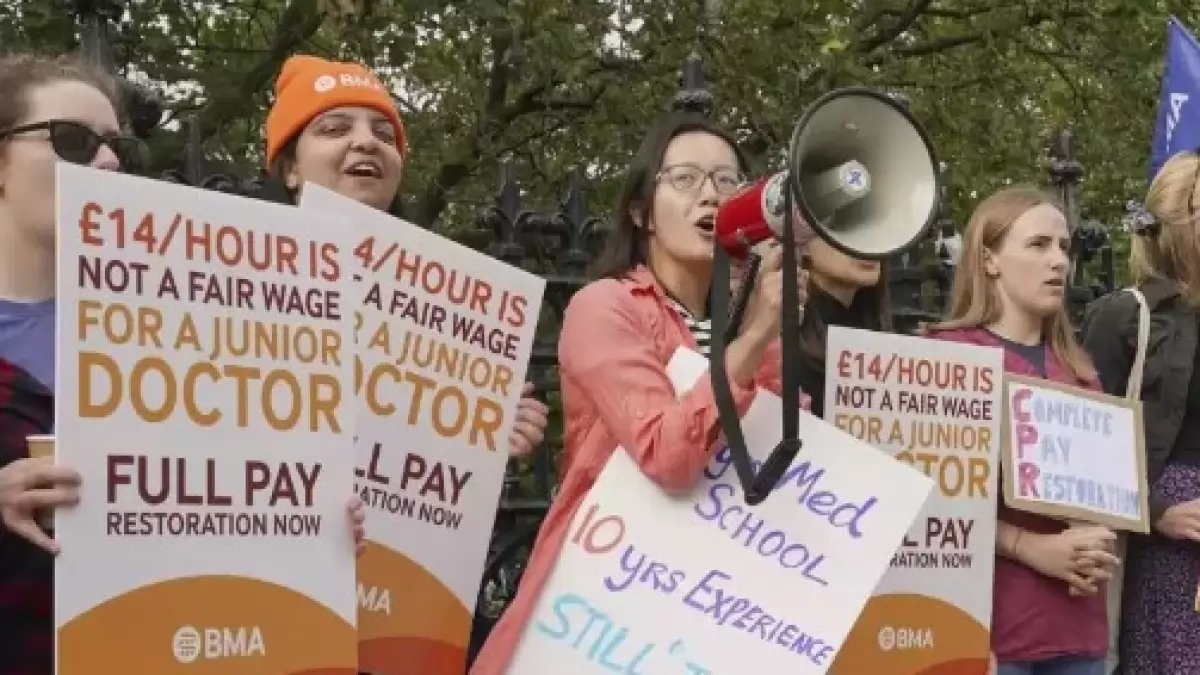UK (Parliament Politic Magazine) – The NHS is bracing for yet another season of discontent, as senior doctors reveal plans for their most extensive strike action ever in the upcoming October. The British Medical
Association has declared that consultants will engage in a three-day strike, spanning from October 2nd to October 4th. This marks the first instance of such prolonged action among consultants as part of their ongoing pay dispute.
The Strike Launched By Thousands Of Consultants
These new dates coincide with the ongoing 48-hour strike launched by thousands of consultants on Thursday. Additionally, there are intentions for another two days of industrial action scheduled for September 19-20.
In keeping with previous strike arrangements, these upcoming actions, including any that follow, will ensure “Christmas Day” coverage, ensuring that all emergency services remain functional, as confirmed by the BMA.
Having cast their votes in June, senior NHS doctors proceeded to engage in a two-day industrial strike during July. According to projections by NHS England, the effects of this week’s industrial action will soon push the tally of cancelled or deferred appointments and surgeries due to industrial actions within the NHS since December past the 1 million mark.
Already, nearly 890,000 appointments have been rescheduled, resulting in an estimated expense of around £1 billion for the health service. NHS England expressed concerns that the industrial action coinciding with the August bank holiday will intensify the strain on the health service, given the fact that many staff members are on vacation during this period.
48 Hour Strike By Senior Doctors All Through England
With the resumption of a 48-hour strike by senior doctors, hospitals throughout England witnessed a significant halt in their services on Thursday. This strike emerges within the context of an ongoing pay dispute between medical professionals and the British government.
Numerous hospital doctors have declared their commitment to delivering solely emergency care during this period. The National Health Service has cautioned patients to anticipate considerable disturbances throughout the duration of this two-day strike.
The events of Thursday mark the most recent episode in a sequence of strikes initiated by doctors, nurses, and other clinical personnel in recent months. These actions are part of a broader wave of disruptive industrial protests by public sector employees, driven by the urgent demand for improved wages amid the prevailing cost-of-living challenges in the U.K.
Governement Has Maintained Its Stance On Pay Increase
The Conservative government has maintained its stance that pay negotiations are concluded, following its announcement of a 6 percent salary increase for senior doctors. Health Secretary Steve Barclay highlighted that senior doctors already earn an average annual income of £134,000 (equivalent to US$169,500), in addition to a substantial pension package.
The British Medical Association, representing doctors, strongly criticized this raise as “insulting.” They underlined that over the past 14 years, doctors have faced a 35 percent decline in real-term pay. Many doctors also express that their motivation for taking action stems from the need to draw attention to their challenging working conditions.
“We would greatly prefer to be within the hospital, attending to our patients. However, we cannot remain idle while we consistently face devaluation, erosion of our position, and the unfortunate departure of colleagues—ultimately to the detriment of both the NHS and the patients,” stated Dr. Vishal Sharma, a leader within the union.
Read More: Halifax Report Indicates Improved Housing Affordability Compared to Last Year
British Medical Association To Initiate The Strike Further
The British Medical Association revealed that its members have intentions to initiate further strikes on September 19-20 and October 2-4, should the government decline to re-engage in negotiations. Simultaneously, a significant number of junior doctors, those in the early stages of their careers, are persisting in their pay dispute with the government.
The impact of the nine-month-long series of strikes has led to the cancellation of nearly 840,000 hospital appointments for both inpatient and outpatient care, as indicated by figures.Over the past year and a half, millions of workers across various sectors in the U.K.—including train and bus operators, airport baggage handlers, and educators—have engaged in labor walkouts, all advocating for wages that align with the soaring cost of living.
The U.K. experienced a forty-year high in inflation, reaching 11.1 percent in October of the previous year, primarily driven by substantial increases in energy and food expenses. Subsequently, inflation receded to 7.8 percent by July.


